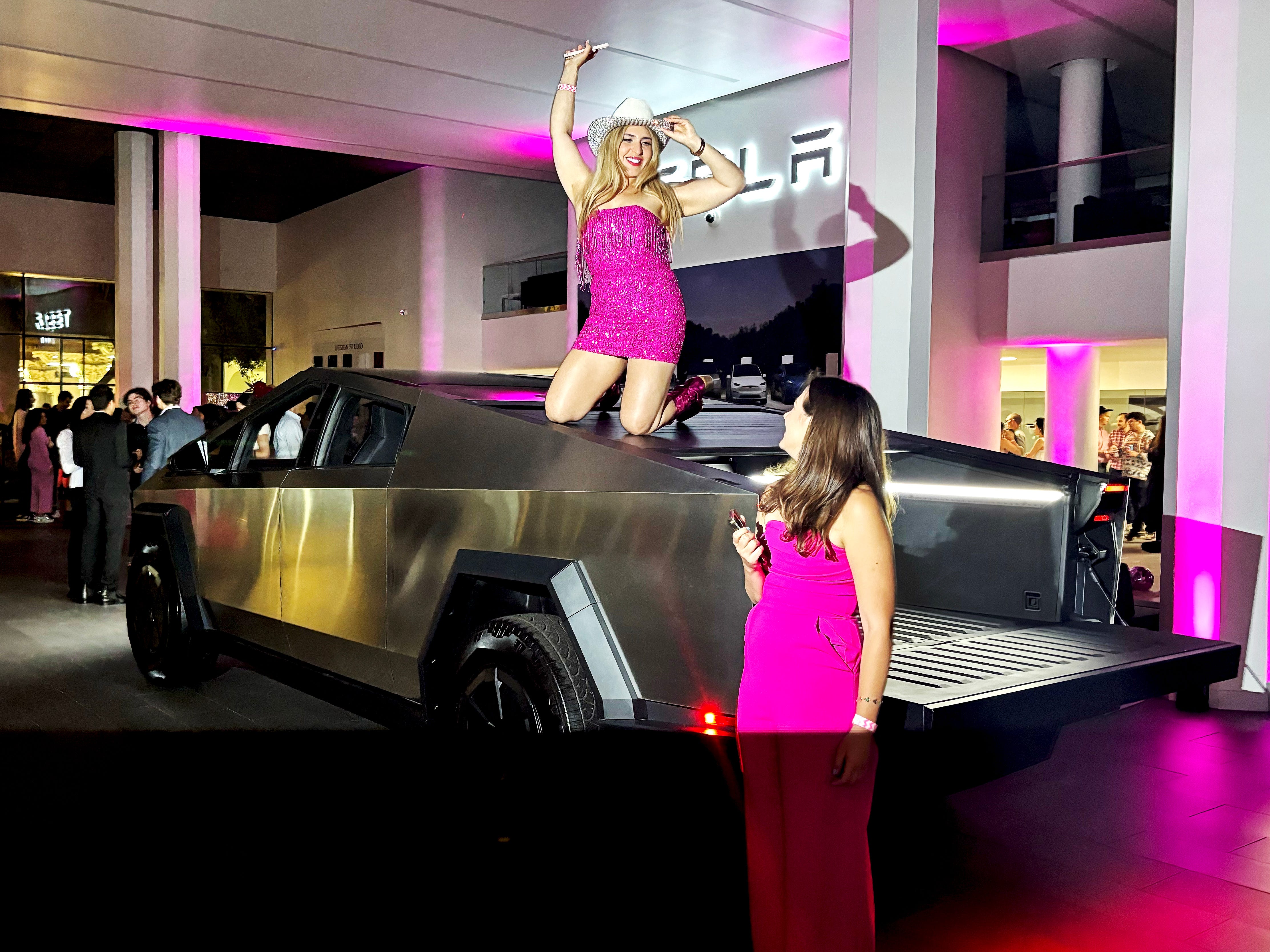
Thomas Maxwell/ BI
In the heart of the tech world, where diversity and inclusion is out of fashion, a Saturday night party at Tesla’s San Francisco showroom offered a tongue-in-cheek solution to one of the areas where the ongoing gender disparities are undoubtedly pronounced: dating.
The “Enforced Ratio” party, thrown this past weekend by two women in tech in response to the pervasiveness of sausage fests in San Francisco, was a night of carefully crafted contradictions. It was an event centered on “feminine energy” where a 50:50 gender ratio was strictly enforced. All told, about 200 women and 200 men attended. Test drives of the macho Cybertruck were paired with delicate cocktails. One of those cocktails was even named The James Damore (tequila, raspberry puree, lemon, club soda), a nod to the former Google employee who was fired over a memo he wrote asserting that efforts to equalize gender ratios are wrong because biological differences are the root cause of the industry’s gender disparities. The event was a microcosm of the very tensions within tech that it seemed to be both celebrating and exposing.
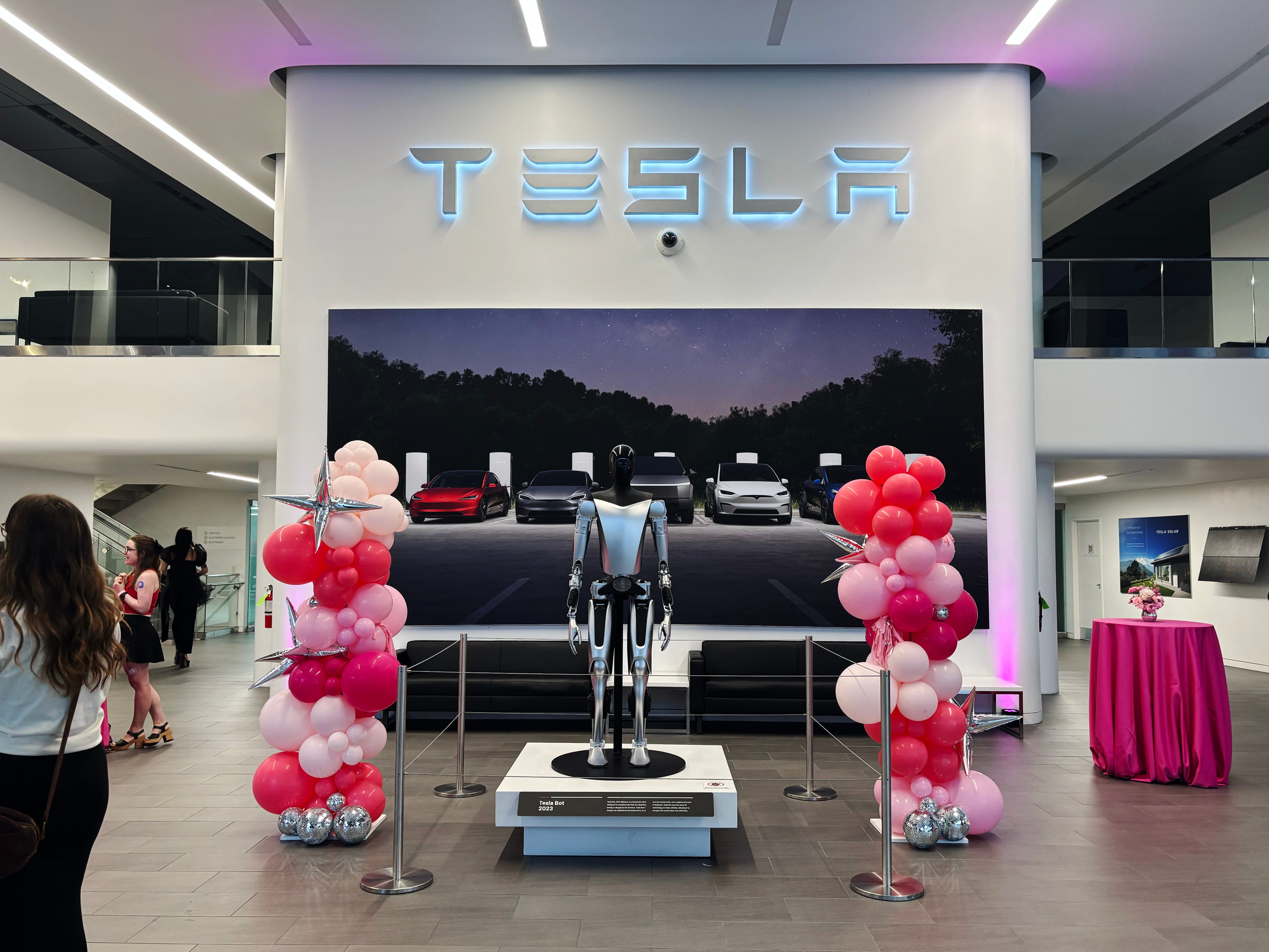
Thomas Maxwell/ BI
Before the party kicked off at 7 p.m., lines formed around the block. As they waited to have their passes and IDs checked, women discussed a common sentiment: San Francisco’s male-dominated parties are not a chance to dress to the nines, but places where one is expected to dress down in Patagonia fleeces and startup T-shirts. This party was different. The dress code at “Enforced Ratio” was “Barbie glam,” and multiple women remarked how they were spending less time talking about their jobs, as they frequently do at SF parties, and more time on their shimmering outfits. The men largely opted for muted suits over sparkly pink. One towering man donned a black T-shirt, black hoodie, and a black full-face mask reminiscent of Bane from “The Dark Knight Rises” for the duration of the event.
The hosts, Madison Kanna and Cat Orman, who work in AI and robotics, respectively, decided to throw the party after quipping on X about their frustrations with what’s become known in the Bay Area as “the ratio.” Tech remains male-dominated, with women comprising 22% of the industry. No matter where they went in Silicon Valley — from “Man Francisco” down to “Man Brose” (aka San Jose) — the disparity was the same. “I thought it would be a hilarious bit to have a party where there are more women than men, or at least have a 50/50 ratio, which is still rare,” says Kanna, who works at the AI startup Baseten and moved to San Francisco about six months ago.
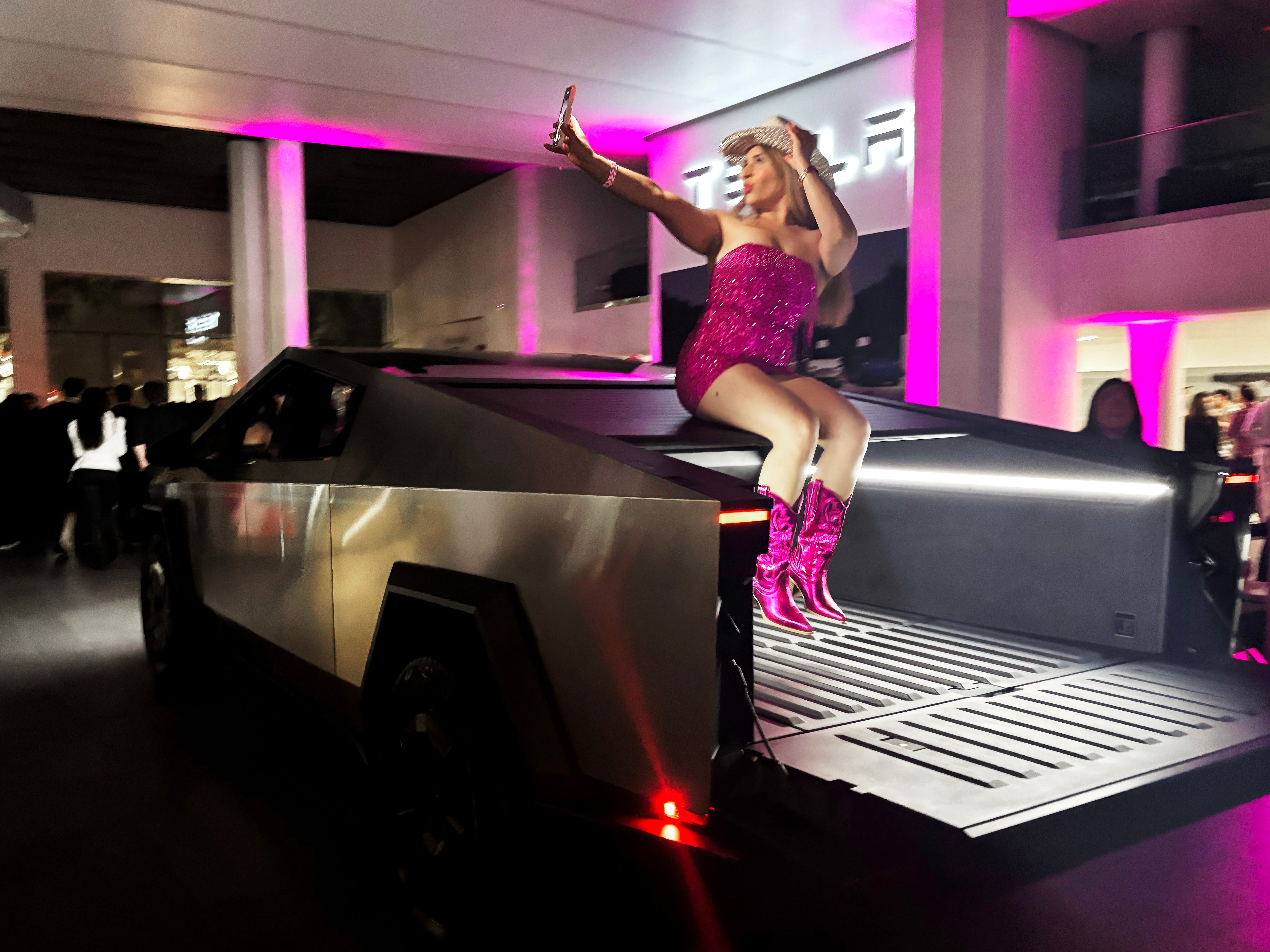
Thomas Maxwell/ BI
There has long been a feeling that nightlife in the city is sedated, but the sleepiness seemed to become especially acute after the pandemic. Record numbers of Gen Zers report not drinking, and wellness figures like Bryan Johnson — who goes to bed at 8:30 — are idolized for optimizing their health. The women I spoke to also say there may be something of a herd mentality that causes them to avoid house parties if friends aren’t attending. Women generally have more options for things to do on an average weekend night, says Joyce Zhang, a former Stripe product manager turned dating coach, who was not in attendance.
Zhang says she used to attend tech parties, but gave up after a series of negative experiences. “You go to these parties, and it’s just a casual hangout. Then you have dudes who swarm around the women, like it’s obvious what’s going on, what they’re trying to get out of it. Maybe that’s why women don’t show up much.”
Tiffany Nguyen, a 28-year-old recruiter at drone maker Skydio, tells me the circles at most tech parties are tight. “They’re never drinking very heavy, just a lot of nerdy yapping,” she says. She also avoids most tech parties because “all people can talk about is work and tech,” and a lack of emotional quotient is common among attendees.
“Everyone in SF takes themselves so seriously,” says Kanna. “We’re trying to have fun and do something funny. ‘Enforced Ratio’, it’s meant to make you laugh.” She adds, “It’s post-ironic.”
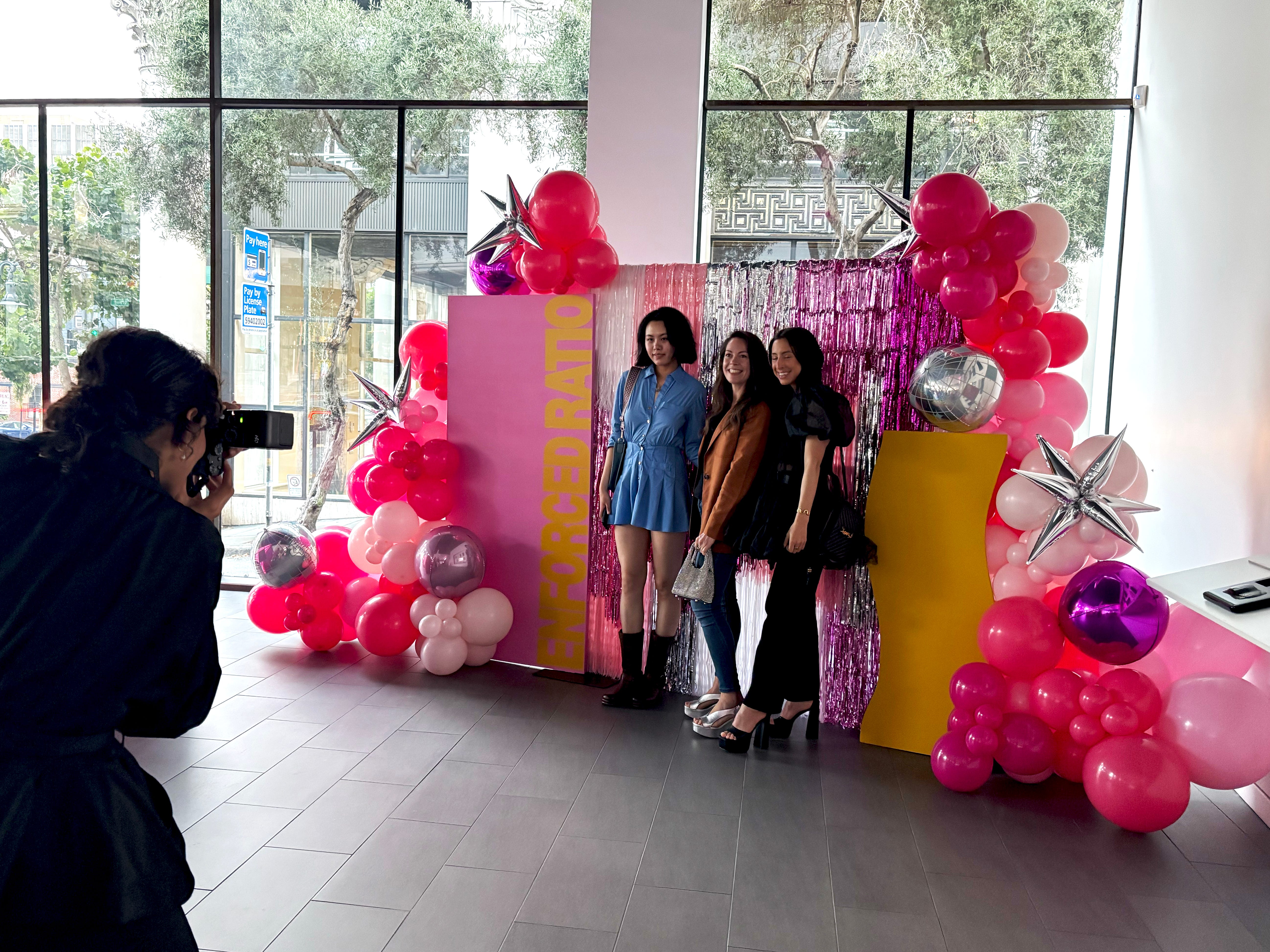
Thomas Maxwell/ BI
At one point, Kanna and Orman had accepted around 300 women for the party, even though the entire guest list would max out at 400 due to the showroom’s capacity. The pair overindexed, expecting more women than men to cancel and even out the ratio. Hundreds of men were left languishing on the waitlist, some of whom signed up for the Luma invite using women’s names, according to Kanna, perhaps in hopes the hosts would be duped into letting them in. The hosts say they selected men from two criteria: if they were attending with their girlfriends, and if they received positive references from multiple women. (Kanna and Orman declined to comment on how they addressed any interested attendees who might have identified as non-binary.)
Among the attendees was a who’s who of tech influencers, including the podcaster Dwarkesh Patel (who wore a white linen button-up) and crypto personality Tiffany Fong (strapless pink dress and knee-high white leather boots). Tesla offered its space for the event but was not involved beyond offering free test rides of the Cybertruck. Women also took pictures as they stood on top of the vehicle, at least one of them pantomiming a mechanical bull ride. (“Bitches love Cybertucks,” Fong posted on X the next day.) Inside the truck, attendees played chess on the dashboard infotainment system.
Standing near an Optimus robot, Rona Wang, a 26-year-old compiler engineer, tells me that many men in tech focus on their financial gains and do not spend much time learning how to speak to women. “I’ve met a lot of men who think having a lot of money should make me impressed by them.”
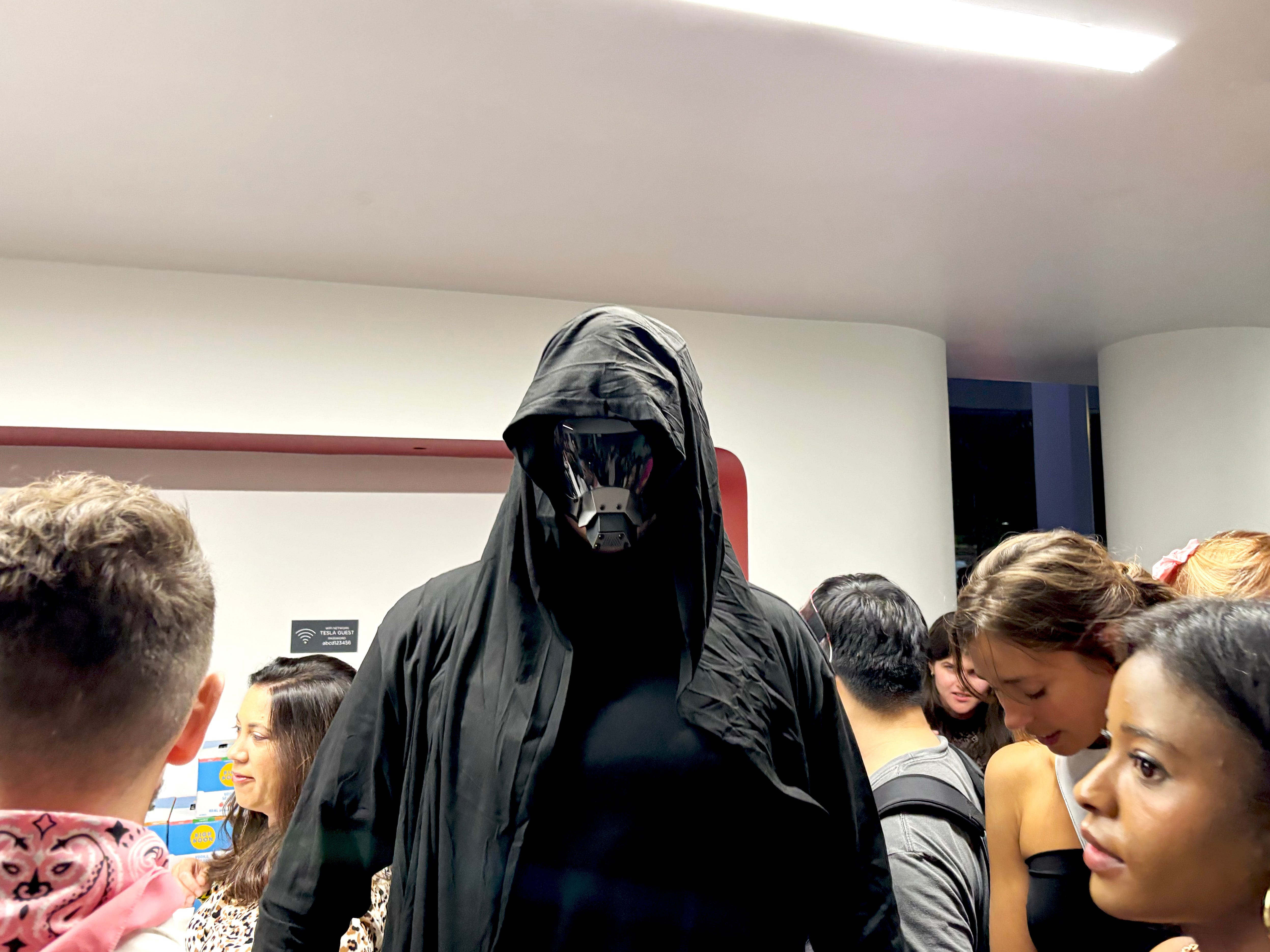
Thomas Maxwell/BI
Over by the (male) DJ booth, Paula Dozsa, a 30-year old engineer at AI startup Portola, says that while she does not normally dress up for tech parties, she did for this. She usually only breaks out her nicer outfits for another party series called the “San Francisco Freedom Club,” co-hosted by Intercom CEO Eoghan McCabe, where the theme is evangelizing American ideals. Dozsa tells me she met her boyfriend on X, vibing over commonalities, and avoids awkward conversations by mostly talking to people she already knows.
“As a European, I definitely wouldn’t have compared it to a soirée on the shores of Lake Como,” says Eric-Andrei Cantacuzino Geafar, a 25-year-old graduate student at Stanford. But the party, he says, has “one of the most original takes and locations one could think of for an event with some of the most impressive tech people I’ve ever met so far.” And by his count, the final ratio may have slightly skewed in the men’s favor.
Zhang, the dating coach, says there’s a lot of low-hanging fruit in terms of physical glow-ups for San Francisco men. Laid-back appearances are counterintuitively venerated in San Francisco, where a hoodie and sweatpants are still seen as something of a signal of wealth and influence. “You don’t even have to do the hard work of getting a new personality,” she says. “You can just get new clothes, and it can make a huge difference.” She noted, though, that the men she’s coached in SF are very open to improving their overall relationship skills — after spending much of their lives focused on IQ. She speaks in typical startup lingo to help them, communicating through acronyms like OKRs (objectives and key results) for measuring and tracking progress on their dating journeys.
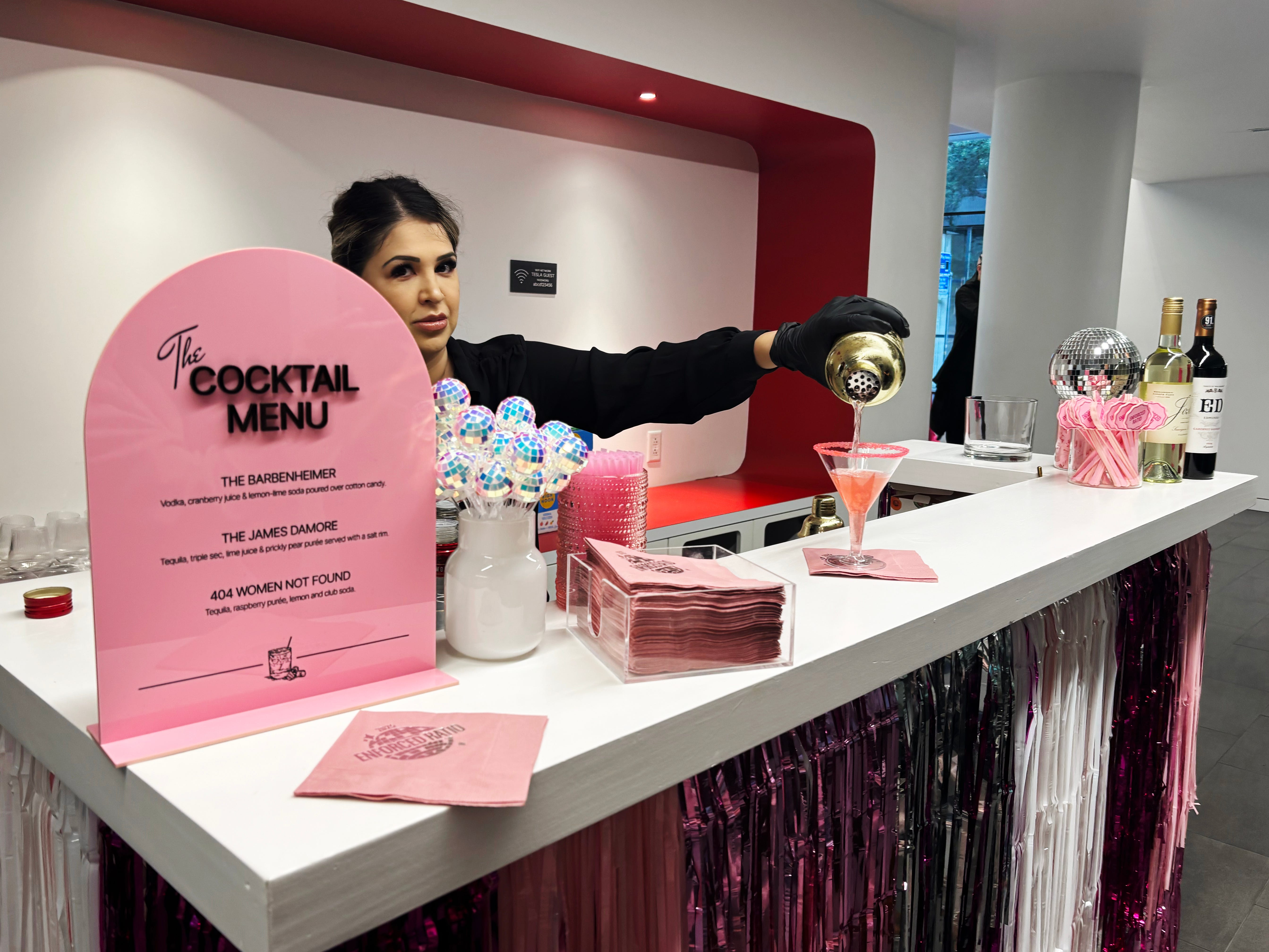
Thomas Maxwell/ BI
Maria Valentina Escudero, 26 and working in tech, says that while San Francisco has some solid bars and clubs, “the vibe here usually feels a lot less glamorous compared to the East Coast.” She says Enforced Ratio stands out with its “flirty, fun, and sexy” atmosphere that pushed people to go all out.
But in typical San Francisco fashion, where nothing stays open late, the party ended abruptly at 11 p.m. as Tesla representatives called lights, put stanchions around the bar area, and sent everyone out onto the streets, where many looked for other places to keep the party going. Kanna says more Enforced Ratio parties are being planned.
Thomas Maxwell is a business and tech reporter based in San Francisco.
The post ‘Man Franscisco’ not allowed: Inside a tech party that enforced a 50/50 gender split appeared first on Business Insider.




